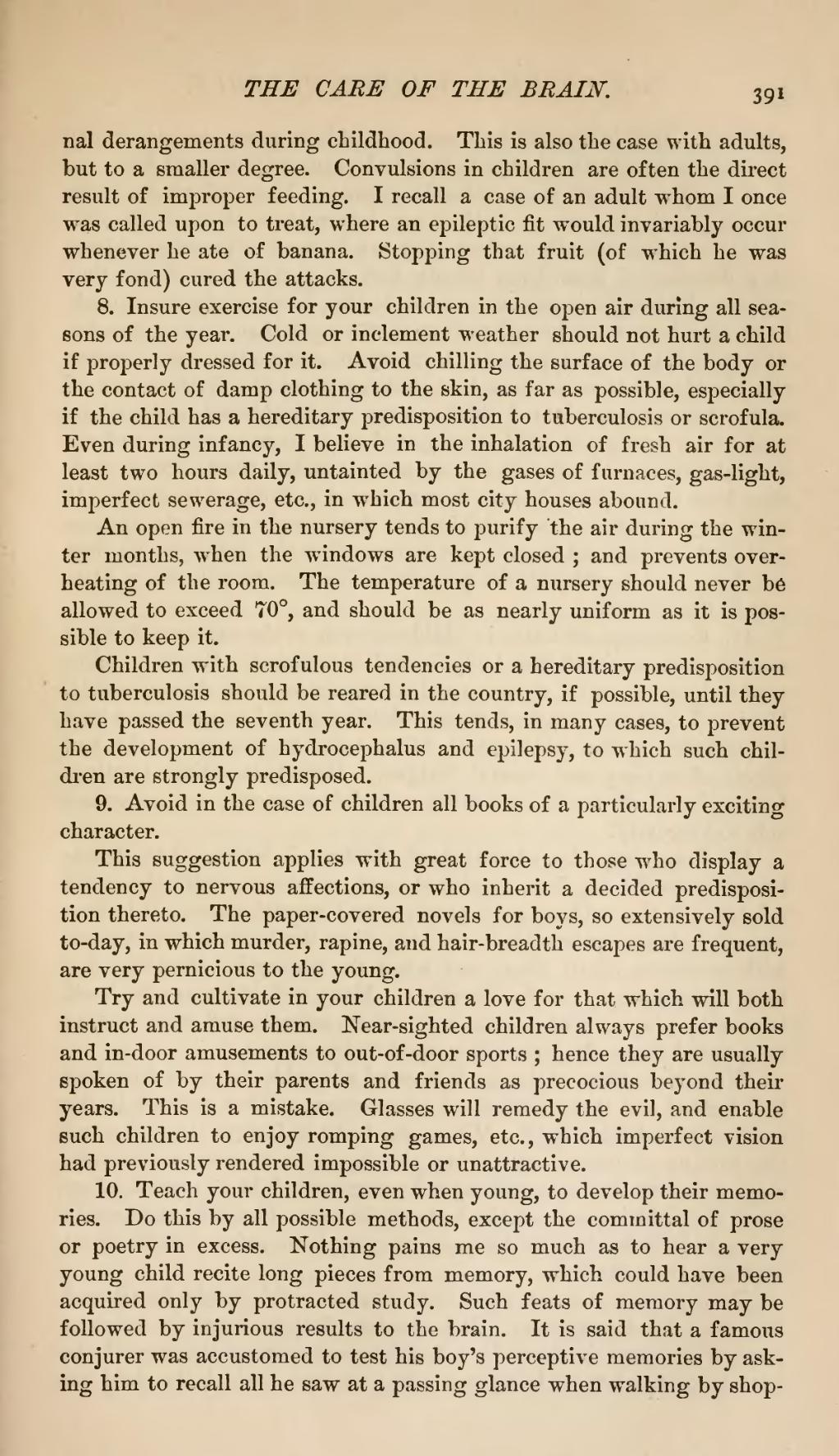nal derangements during childhood. This is also the case with adults, but to a smaller degree. Convulsions in children are often the direct result of improper feeding. I recall a case of an adult whom I once was called upon to treat, where an epileptic fit would invariably occur whenever he ate of banana. Stopping that fruit (of which he was very fond) cured the attacks.
8. Insure exercise for your children in the open air during all seasons of the year. Cold or inclement weather should not hurt a child if properly dressed for it. Avoid chilling the surface of the body or the contact of damp clothing to the skin, as far as possible, especially if the child has a hereditary predisposition to tuberculosis or scrofula. Even during infancy, I believe in the inhalation of fresh air for at least two hours daily, untainted by the gases of furnaces, gas-light, imperfect sewerage, etc., in which most city houses abound.
An open fire in the nursery tends to purify the air during the winter months, when the windows are kept closed; and prevents overheating of the room. The temperature of a nursery should never be allowed to exceed 70°, and should be as nearly uniform as it is possible to keep it.
Children with scrofulous tendencies or a hereditary predisposition to tuberculosis should be reared in the country, if possible, until they have passed the seventh year. This tends, in many cases, to prevent the development of hydrocephalus and epilepsy, to which such children are strongly predisposed.
9. Avoid in the case of children all books of a particularly exciting character.
This suggestion applies with great force to those who display a tendency to nervous affections, or who inherit a decided predisposition thereto. The paper-covered novels for boys, so extensively sold to-day, in which murder, rapine, and hair-breadth escapes are frequent, are very pernicious to the young.
Try and cultivate in your children a love for that which will both instruct and amuse them. Near-sighted children always prefer books and in-door amusements to out-of-door sports; hence they are usually spoken of by their parents and friends as precocious beyond their years. This is a mistake. Glasses will remedy the evil, and enable such children to enjoy romping games, etc., which imperfect vision had previously rendered impossible or unattractive.
10. Teach your children, even when young, to develop their memories. Do this by all possible methods, except the committal of prose or poetry in excess. Nothing pains me so much as to hear a very young child recite long pieces from memory, which could have been acquired only by protracted study. Such feats of memory may be followed by injurious results to the brain. It is said that a famous conjurer was accustomed to test his boy's perceptive memories by asking him to recall all he saw at a passing glance when walking by shop

